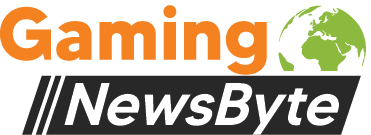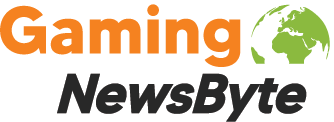Now Reading: Gambling Regulations in Cameroon
-
01
Gambling Regulations in Cameroon

Gambling Regulations in Cameroon
Gambling Regulation in Cameroon
The gambling industry in Cameroon is governed by a comprehensive legal and regulatory framework designed to oversee various forms of gambling activities, including sports betting, casinos, public lotteries, and online games.
This framework ensures the orderly development of the sector while safeguarding public interests and generating government revenue.
Gambling Legal Framework
The principal legislation regulating gambling in Cameroon is Law No. 2019/2300/PM dated July 18, 2019, which specifies the application of Act No. 2015/012 of July 16, 2015.
These laws collectively establish the rules governing all games of entertainment, money games, and games of chance within the Republic of Cameroon.
The law explicitly covers casinos, betting activities, and public lotteries, setting the foundation for licensing, operation, and oversight of gambling enterprises across the country.
Read Also: Nigeria’s Gaming Sector: Analysis of Gambling Regulations and Market Opportunities
Regulatory Authorities
The gambling sector is regulated by two main bodies:
- The Ministry of Territorial Administration, which holds overarching responsibility for licensing and policy enforcement.
- The Gaming Regulatory Agency, which supervises the operational compliance of gambling operators in line with the legal provisions.
Licensing Regime
Gambling licenses in Cameroon are issued for specific categories of gambling activities, each with defined conditions:
- Public Lottery License: Authorizes the holder to operate public lottery activities nationwide for an initial period of five years, renewable thereafter. Licensees must pay a fee determined by the regulatory authority and provide a bank guarantee of 50 million CFA francs (approximately 84,000 USD). Notably, these licenses are non-transferable.
- Casino License: Permits casino operations throughout Cameroon for five years, subject to renewal. Similar to the lottery license, it requires payment of a license fee and a bank guarantee of 50 million CFA francs. Transfer of the license to third parties is prohibited.
- Online Games License: Grants the right to organize online gambling activities across the national territory for five years, renewable. This license demands a higher bank guarantee of 200 million CFA francs (around 333,000 USD) and payment of fees as set by the regulatory authority. It is also non-transferable.
- Sports Betting License: Covers betting activities on both real and virtual sporting competitions domestically and internationally, with the approval of local authorities. The license term and financial guarantees mirror those of the online games license.
Taxation and Fees
Operators in Cameroon’s gambling sector are subject to multiple taxes and fees:
- An annual gaming license fee of 2% on turnover (excluding taxes) is payable by concession holders.
- Company Income Tax (CIT) stands at 33%, with a minimum threshold of 2.2% of turnover.
- Value Added Tax (VAT) on sales is set at 19.25%.
- Withholding tax is 16.5%.
- Registration duties vary between 1% and 15%, depending on the transaction type.
Read Also: iGaming Regulation and Market Prospects in Rwanda 2025
Market Overview and Demand
Cameroon’s gambling market is vibrant, with approximately 216 operators active as of 2024. A 2022 survey indicated that about 34% of the population participates in betting activities, with 89% of these bettors engaging primarily online.
The frequency of betting is high, with many participants betting weekly. Major operators include Bet237, PMUC, 1XBet, BetPawa, and Netbet, all offering sports betting, virtual sports, and casino games such as blackjack and poker.
The market is concentrated mainly in urban centers like Douala and Yaoundé, which are economic hubs and attract the working-class demographic that forms the bulk of gambling consumers.
Payment Systems
The gambling industry in Cameroon leverages modern payment gateways to facilitate transactions securely and conveniently.
The most commonly used platforms are MTN Mobile Money and Orange Money, which allow transactions up to 1 million CFA francs.
These mobile money services are often linked to bank accounts, enhancing ease of use. Other payment methods include cash, bank transfers, and PayPal.
Conclusion
Cameroon’s gambling regulations provide a structured and well-defined environment for the operation of betting, casino, lottery, and online gaming activities.
The regulatory framework, underpinned by specific laws and overseen by dedicated authorities, ensures that the sector operates transparently and responsibly.
With a growing market driven by high demand and technological adoption, Cameroon presents a promising landscape for gambling operators, albeit within a tightly regulated context that emphasizes compliance, financial guarantees, and taxation.
This detailed understanding of Cameroon’s gambling regulations is essential for investors, operators, and stakeholders aiming to engage in or expand within the country’s gaming industry.
Read Also: Gambling Regulations in Uganda














